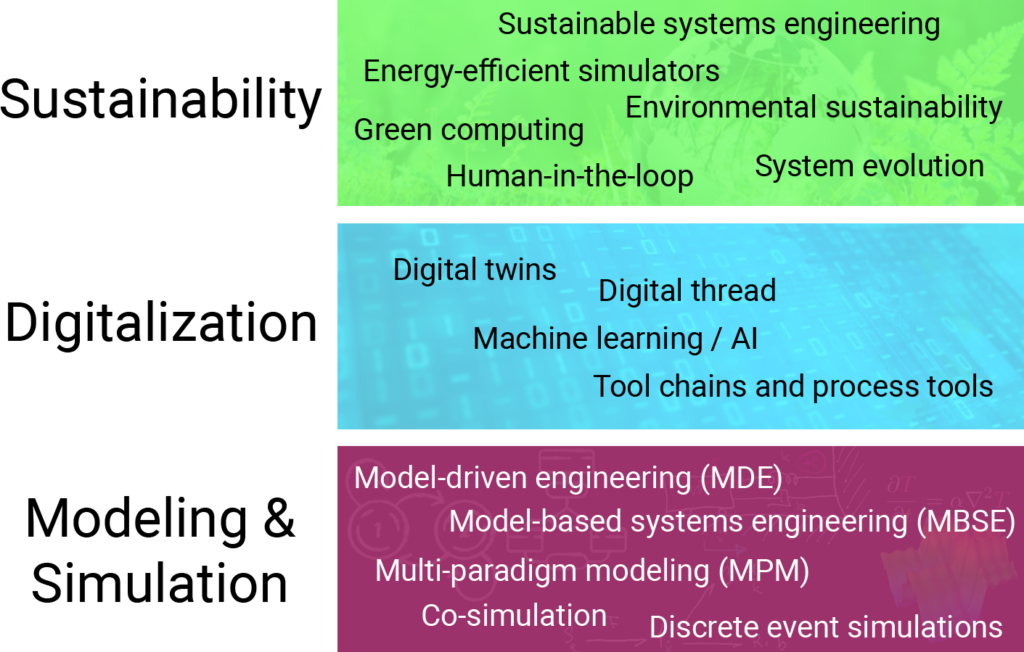
Welcome to the Sustainable Systems and Methods (SSM) Lab. We’re a research lab at the Department of Computing and Software (CAS) of the Faculty of Engineering at McMaster University, Canada. We launched SSM in 2023 to dedicate our efforts to the growing problem of unsustainable systems and their engineering methods.

We research various topics in the broader field of computer science. Modeling and Simulation serve as the methodological foundations to our work and we have vast expertise in various sub-domains, such as Model-driven engineering (MDE) and Multi-Paradigm Modeling and Simulation. Some of our topics include multi-paradigm consistency management, collaborative modeling, especially real-time collaborative (meta-)modeling. Digitalization-enabled technologies help us bring our modeling and simulation expertise to real applications. We’ve been working on digital twins and various topics in AI and machine learning (e.g., LLMs and reinforcement learning). Eventually, all foundational and applied research has to culminate in a meaningful purpose. We chose Sustainability as our purpose and work on addressing pressing sustainability problems in systems engineering, computing, and AI. Lately, we’ve been working on technical sustainability and circularity in systems engineering.
We often work on isolated topics, but frequently participate in projects that require a combination of these concerns. Our latest project was focusing on sustainable smart farming by digital twins and advanced modeling and co-simulation, which also earned us a Best Practice Paper Award at the very prestigious ACM/IEEE International Conference on Model-Driven Engineering Languages and Systems (MODELS).
Vision
Our vision is simple yet ambitious: sustainable systems by sustainable methods.
Mission
We pursue quality scientific research at the intersection of computer science, engineering, and various application domains to devise novel methods and tools that implement our vision.
Context
The steadily accelerating innovation pathways of humankind have rendered prevailing systems engineering paradigms unsustainable. By Brundtland’s classic definition of sustainability, systems engineering falls short of “meeting the needs of the present without compromising the ability of future generations to meet their own needs. Our systems engineering practices fail to fulfill the four essential sustainability dimensions of technical systems: technical (long-term usage); economic (financial viability); environmental (reduced impact); social (elevated utility).
Despite, or perhaps because of our current inability to support sustainability ambitions, it is expected that in the decade ahead of us, users and organizations will reward and demand efforts toward sustainability. The importance of reuse and repurposing will increase and become a key driving force in systems engineering. Sustainability as a system characteristic will become a leading principle in systems’ design, operation, maintenance, and post-life.
Amid these challenges, engineering science must pave the way by providing pragmatic and feasible solutions to (1) build sustainable systems and (2) build systems by sustainable methods. This is the principle of bipartite sustainability.